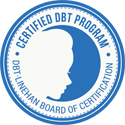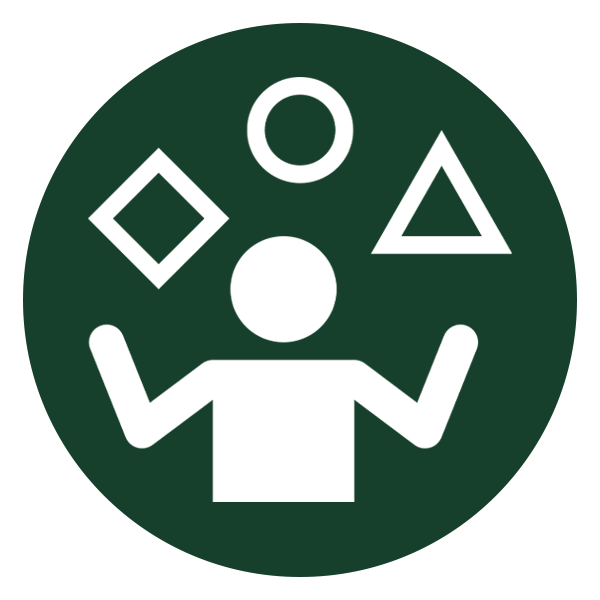Adolescent Residential Treatment for Bipolar Disorder in Los Angeles, CA
Bipolar disorder is a complex condition and can be challenging to diagnose in adolescents. Often, bipolar disorder is written off by providers as the normal moodiness of being a teen. However, for teens struggling with bipolar disorder, the rapid swings between manic and depressive periods can be extreme and difficult to manage alone. If that sounds like your teen, then adolescent residential treatment for bipolar disorder may be helpful.
Compass Behavioral Health offers an adolescent residential treatment program for bipolar disorder, including 24/7 provider support, medication management, and intensive group and individual therapy. The first step is always the hardest, and Compass Behavioral Health will support you and your teen every step of the way.
When to Choose Adolescent Residential Treatment for Bipolar Disorder
Bipolar disorder is a lifelong condition; while many parents feel the weight of that diagnosis for their teen, there’s also good news. By diagnosing the condition when someone is young, we’re able to intervene early and help them develop coping mechanisms so they can lead healthy, fulfilling lives.
Sometimes, outpatient treatment isn’t enough. Your teenager may need more intensive care if they are struggling with the following:
Manic episodes with severe impairment: When your teen experiences distinct periods of mania lasting about a week, characterized by symptoms like irritability, inflated self-esteem, delusions, changes in sleep patterns, and engagement in risky behaviors, residential care may be appropriate.
High risk of harm: If your teen’s manic episodes include behaviors that put their safety at risk, such as self-harm or suicidal ideation, a residential care facility may provide more structured support.
Inability to maintain a stable daily life: If your teen struggles to maintain a stable daily life, including academic performance, relationships, and overall well-being, it may be time to consider residential care.
Outpatient treatment has been ineffective: If outpatient treatment has not produced significant improvements despite ongoing efforts, it may indicate a more intensive level of care may be helpful.
Family or peer feedback: Sometimes, family or peer feedback is crucial in identifying the need for residential care. If those close to your teen notice extreme mood swings and behaviors beyond typical teenage moodiness, it may be a sign that residential treatment is warranted.

It’s important to remember that bipolar disorder exists on a spectrum with varying degrees of severity. The decision to pursue residential care should be made in consultation with mental health professionals who can assess the specific needs and risks of your teen and develop an appropriate treatment plan.
Dialectical Behavior Therapy and Adolescent Residential Treatment for Bipolar Disorder
Long-term management is required for bipolar disorder, so it’s incredibly important to get that first phase of therapy right. While medication, cognitive-behavioral therapy, and family support are common approaches, they don’t always address the unique challenges individuals with bipolar disorder face. This is where Dialectical Behavior Therapy (DBT) comes into play.
DBT was initially developed for borderline personality disorder but has shown promise in helping people manage bipolar disorder as well. It focuses on teaching emotional regulation skills, mindfulness, distress tolerance, and interpersonal effectiveness. These skills can be particularly valuable for individuals who often struggle with intense mood swings and emotional dysregulation.
| What Is DBT? |
|---|
| Dialectical Behavior Therapy, known as DBT, aims to equip individuals with the essential skills for regulating emotions, enhancing interpersonal effectiveness, tolerating distress, and embracing acceptance. Through radical self-acceptance and skills development, teens learn to validate their feelings and change their behaviors. I can accept myself as I am while also changing destructive behaviors. |

Compass Behavioral Health proudly holds the distinction of being California’s first Certified Program™ by the DBT-Linehan Board of Certification. Our program is highly respected and is designated as a DBT Rotation & Training Site for UCI Medical School Child & Adolescent
Questions to Ask About Residential Therapy for Your Teen
Teens struggling with bipolar disorder may experience a profound sense of isolation. They yearn to connect with peers and establish healthy routines, yet often lack the coping skills to achieve these goals. Adolescent residential treatment for bipolar disorder can provide them with the foundational skills necessary for a lifetime of self-mastery. Here are some questions to ask as you seek treatment options for your child.
What is your treatment approach, and what evidence do you have of its effectiveness?
It’s essential to choose a treatment provider that uses evidence-based approaches with proven effectiveness when seeking help for teenagers struggling with bipolar disorder. One such practical approach is DBT – widely recognized for its benefits in managing bipolar disorder symptoms. When considering a treatment facility, it’s crucial to check the qualifications of the therapists and their commitment to evidence-based practices.
What safety measures are in place at the facility?
Ensuring resident safety is paramount. A specialized program should have robust safety measures to support your teen effectively.
At our residential facility, we prioritize the well-being of our residents by offering comprehensive assistance 24/7, including:
24-hour crisis intervention: Immediate support during challenging moments, ensuring your teen’s safety.
DBT skills coaching: Equips residents with essential tools for emotional regulation, which is especially crucial for bipolar individuals.
On-site nursing care: Provides continuous medical support and monitoring.
24-hour access to physician services: Ensures quick access to medical professionals when needed most.

Get help maximizing your insurance coverage.
Compass Behavioral Health has a high rate of obtaining single case agreements as a Certified DBT Program. We’ll work with your insurance provider to get you the best coverage possible and minimize your expenses.
How do you tailor your treatment plan
to meet specific needs?
Teens should receive ample individualized attention and therapy as part of their treatment, ideally with a program tailored to their needs.
At Compass, we prioritize a high level of focused attention. Specifically, our residents enjoy:

Small Group Size
At Compass, we limit group sizes to just six residents, ensuring personalized care and support. Our focused approach prioritizes safety and well-being, both during their time with us and beyond.

Interpersonal Skills Building
Bipolar disorder can create challenges in forming connections for teens. Compass recognizes this and customizes family and group therapy sessions to assist in developing essential interpersonal skills. By addressing these challenges, we empower teens to navigate social relationships more effectively.

Personalized Attention
At Compass, each resident receives three hours of personalized therapy per week and has access to ongoing DBT skills coaching 24 hours a day.
Is medication management part of your program?
Medication plays a pivotal role in managing bipolar disorder. It’s vital to collaborate with skilled healthcare experts to ensure the precise prescription and ongoing monitoring of medications during treatment.
At Compass, we offer comprehensive weekly psychiatric medication management, guaranteeing a consistent and personalized approach to addressing bipolar disorder’s unique challenges.
What outpatient support is available?
For the best continuity of care, your teen should work with the same provider from their residential treatment. Ensure the facility has a robust outpatient program for ongoing support.
Compass Behavioral Health offers a range of outpatient programs to support teens and their families during and after treatment.
| DBT Individual Therapy | DBT Skills Training Group | Family Connections® | Multi-Family Group | Peer-Facilitated Skills Coaching |
|---|---|---|---|---|
| Develop new skills, coping methods, and mindfulness practices with DBT-trained clinicians to replace unhealthy thoughts and improve behaviors and emotions. | Weekly sessions over about 28 weeks, teaching adolescents how to navigate feelings and behaviors skillfully. | A 12-week course for people in a relationship with a teen struggling with emotion regulation, providing education, skills training, and support. | Grounded in DBT skills, this 6-7 month experience helps parents and their children learn DBT skills together as a team. | Small group or one-on-one sessions led by peer mentors with supervision by a licensed therapist are offered free to Compass community members. |
| One-on-One DBT Skills Coaching | Mindfulness Group | Family Therapy | Advanced DBT | DBT Informed Therapy |
|---|---|---|---|---|
| Behavioral rehearsal of core skills 1-2 times a week, focusing on strengthening skills. | Learn emotional acceptance and living in the moment through mindfulness meditation. | Utilizes the "Entire Family" model to provide support, healing, and education to optimize well-being. | Develop a deeper understanding of DBT skills in real-life situations with guidance from trained mentors. | A flexible treatment for Stage 3 and Stage 4 residents, focusing on select components of DBT as needed. |
Empower Your Teen With Compass Behavioral Health’s Bipolar Disorder Treatment Program
At Compass Behavioral Health, our adolescent residential treatment program for bipolar disorder offers a unique and compassionate approach to healing that prepares teens with powerful emotional regulation tools. Our holistic approach empowers you and your teen to heal together by building skills rooted in evidence-based practices centered around DBT.
With residential and outpatient components, we offer a comprehensive continuum of care that ensures your teen’s well-being. Our program includes 24-hour crisis intervention, on-site nursing care, and round-the-clock access to physician services, ensuring the safety and stability of our residents.
Situated conveniently near Los Angeles, our adolescent residential treatment program for bipolar disorder provides a foundation for your teen’s future. Our team helps build a support community for your child that they can lean on even when they leave residential care.
If you’re interested in our adolescent residential treatment for bipolar disorder, contact us for a free consultation.

